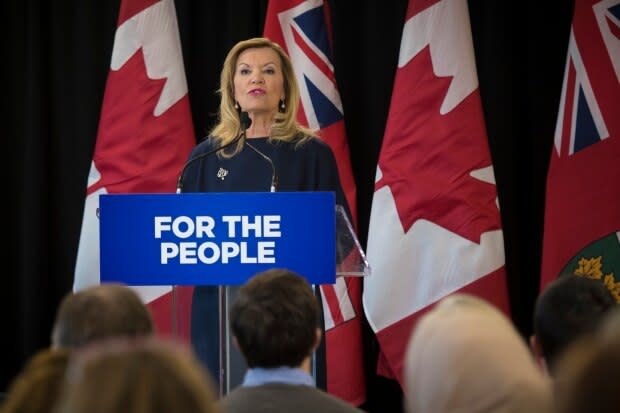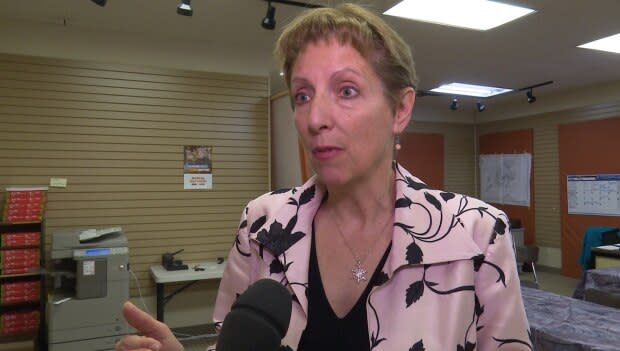Ontario moves to create a mental health 'centre for excellence'
The Doug Ford government is taking its first major step toward reforming mental health treatment in Ontario, and received rare support from the opposition parties for the move.
The Legislature unanimously passed a bill this week to create a "centre of excellence" for mental health and addictions.
The government says the centre — not a physical facility but rather a provincial agency — will oversee its mental health and addictions strategy, support the ground-level providers of mental health services and monitor how the system is working.
The centre forms "the foundation for the changes that we want to bring to our mental health and addictions system," said Health Minister Christine Elliott in an interview Friday. "It's a great start, but of course there still is a lot of work yet to do."
The legislation passed with the unanimous support of opposition MPPs, something that has happened with just three other government bills in the year and a half since the PCs took office.
"It says to me that all members are concerned about our mental health and addictions system and want to see us do something about it," said Elliott.

NDP health critic France Gélinas called the bill "a step in the right direction."
The creation of the centre of excellence "is giving mental health and addictions a home," said Gélinas in an interview Friday. "It is something that I believe will change mental health for the better."
Gélinas said it is important for Ontario to have a central agency overseeing mental health services and gathering data. "I continue to have worries, but it was worth voting in favour," she said.
The creation of such an agency was recommended nearly a decade ago by an all-party special committee on mental health, but successive Liberal governments didn't follow through.
Elliott said the centre can begin running in a matter of weeks to help implement that government's new comprehensive mental health and addictions program, which she says will be revealed early next year.
It's part of the government's massive overhaul of the health system, including the merging of regional and specialized health bureaucracies into one agency called Ontario Health, plus a move to link local hospitals, home care agencies, long-term care facilities and community clinics in jointly administered groups called Ontario Health Teams.

Among the crucial issues confronting the government as it launches the strategy: lengthy wait times for some mental health services, particularly for children.
The centre is designed to guide local care providers on the best practices in mental health, said Elliott, and co-ordinate community resources to make it easier for people to access care.
"Many people who require mental health services often just end up in the emergency department in the hospital because that's the default place, " said Elliott. "They don;t know anywhere else to go."
There is overall support for the centre's creation from Addictions and Mental Health Ontario (AMHO), the umbrella group of nearly 200 mental health and addictions care providers, including detox facilities, community clinics and specialty psychiatric hospitals.
However, fears remain about how the mental health reforms will be implemented, said AMHO's chief executive Adrienne Spafford.
"Absolutely there's anxiety around this," said Spafford in an interview Friday. "Ultimately, there's agreement that the system isn't working nearly as well as it could for people."

It's essential that the government invests more in effective mental health services, addresses inequities in the availability of care in different parts of the province and consults with the agencies doing the work, said Spafford
"There's too many people going without services," she said.
The PCs added $174 million to Ontario mental health and addictions budget last year, part of a $3.8 billion promised investment over the coming 10 years, with the funding split equally by the provincial and federal governments.
Despite the all-party support for the bill in the Legislature, opposition MPPs called on the government to spend more on mental health services.
"We must make sure that this centre is not just symbolic," Green Party leader Mike Schreiner said during the debate on the bill. "For real action to happen, this centre needs to be backed with proper funding for mental health and addictions."
The legislation also laid down the framework for Ontario to join other provinces in a class action lawsuit against drug companies for allegedly marketing opioids as less addictive than other pain medications. If the province wins the case, the Ford government has promised spend the money on mental health and addiction services.


